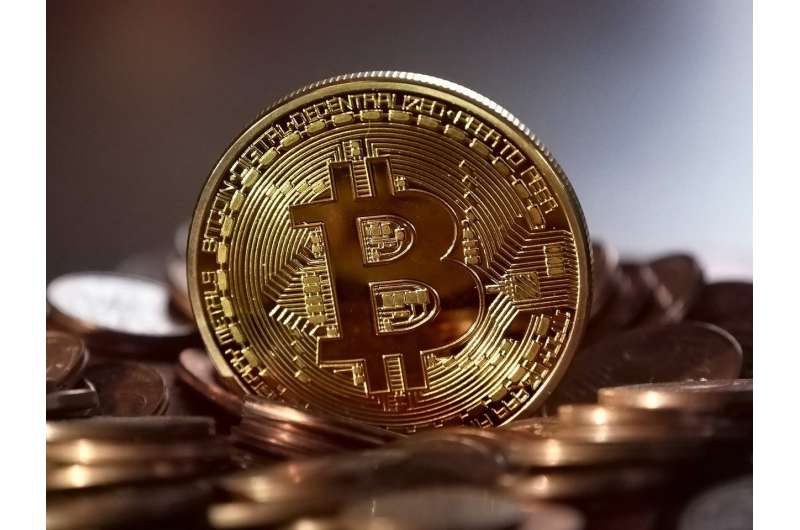
Lockdowns during the COVID-19 pandemic saw an exponential rise in cryptocurrency investments which was partially driven by the stress of social isolation, QUT researchers have found.
The study’s results have major implications for financial advisors, marketers and policymakers on how to curb excessive risk-taking among isolated individuals.
The article, “Social isolation and risk-taking behavior: The case of COVID-19 and cryptocurrency,” was published in the Journal of Retailing and Consumer Services.
Dr. Thusyanthy Lavan and Professor Brett Martin, from the QUT School of Advertising, Marketing and Public Relations, with overseas colleagues, studied the consumer interest in cryptocurrency during the pandemic.
Dr. Lavan said the team looked at the impact of the pandemic’s prolonged enforced social isolation coupled with economic instability that drove risk-taking behavior, particularly in cryptocurrency investment.
“At the beginning of the pandemic, in January 2020, market capitalization of these online currencies was about $191 billion but had surged to $769 billion by December 2020,” Dr. Lavan said.
“This shift is underscored by the significant increase in the Bitcoin price, up 700% from March 2020 to March 2021.
“The attraction of these high-risk investments could be linked to their perceived potential for high returns during times of economic instability and market volatility.
“A further factor might be people’s tendency to try to reinstate some control in their lives and gravitate toward more autonomous and seemingly empowering activities, such as trading in cryptocurrencies.
“With this in mind, our aim was to look for the broader psychological responses to social isolation that catalyzed these changes in consumer decision-making, particularly in adopting new, and potentially riskier behaviors.
“Previous research has established the direct effects of social isolation on risk-taking behavior in non-purchase situations such as sharing of personal information on social media, but this is one of the first studies to examine risky purchase behavior.”
Professor Martin said they conducted a survey in December 2022 during a lockdown period in Australia of 216 participants screened for awareness of and familiarity with cryptocurrency but who were not current investors.
“By focusing on potential future investors, we aimed to capture unbiased perceptions and insights into cryptocurrency investment decisions,” Professor Martin said.
“Our survey sought to identify how three psychological constructs—perceived stress, sense of control and neuroticism—might underlie the relationship between social isolation and risk-taking behavior.
“Perceived stress is a personal interpretation of stress regarding a situation in a person’s life they consider to be beyond their adaptive capacities, while sense of control reflects a person’s belief in their ability to influence events and outcomes in their life.
“Neuroticism is a tendency to experience negative emotional states such as anxiety and impulsiveness.
“Our analysis of the results showed that perceived stress, rather than a sense of control or neuroticism, plays a key role in driving risk-taking behaviors during periods of social isolation.
Professor Martin said the researchers were not criticizing cryptocurrency.
“To be clear, my recently published research has shown how the process of cryptocurrency investing can have a positive effect on peoples’ lives.
“In this project, we looked at the effect of lockdowns and isolation-induced risk-taking. This research can provide insights on developing better support strategies for vulnerable populations.”
The research team comprised Dr. Lavan, Professor Martin, and Professor Weng Marc Lim and Professor Linda Hollebeek from Sunway University, Malayasia.
More information:
Thusyanthy Lavan et al, Social isolation and risk-taking behavior: The case of COVID-19 and cryptocurrency, Journal of Retailing and Consumer Services (2024). DOI: 10.1016/j.jretconser.2024.103951
Provided by
Queensland University of Technology
Citation:
COVID-induced social isolation drove cryptocurrency investment up 75% (2024, June 25)
retrieved 25 June 2024
from https://phys.org/news/2024-06-covid-social-isolation-drove-cryptocurrency.html
This document is subject to copyright. Apart from any fair dealing for the purpose of private study or research, no
part may be reproduced without the written permission. The content is provided for information purposes only.


